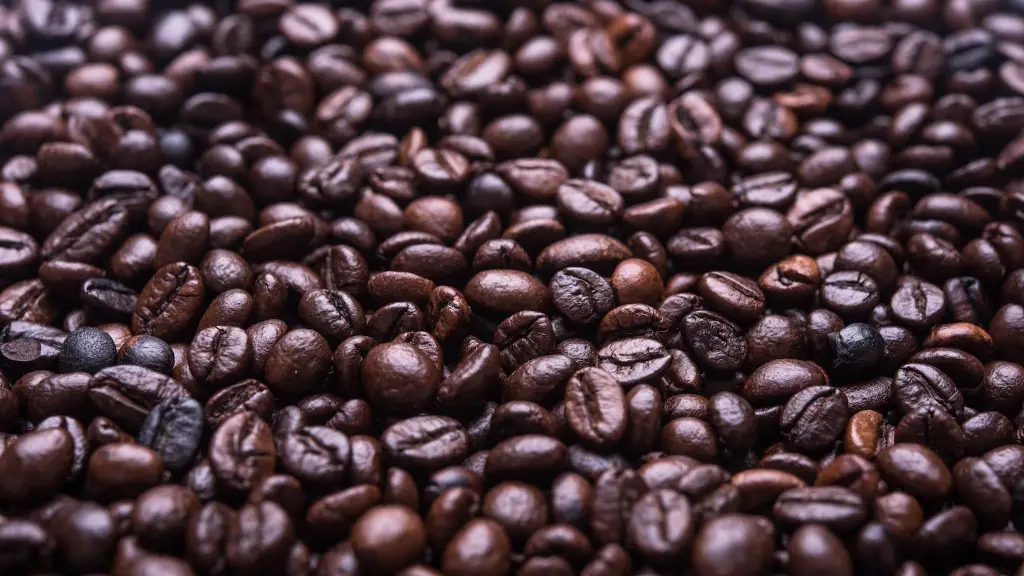The Effects of Drinking Coffee While Breastfeeding
Coffee is a popular beverage worldwide and it’s an important part of many diets, yet when you’re breastfeeding, some questions come to mind. Can you drink coffee and still continue to breastfeed? Is it safe for the baby? What are the effects of caffeine on your newborn?
The amount of caffeine that the mother consumes can be passed on to the baby through breastmilk and can affect their sleep and mood patterns. The American Academy of Pediatrics recommends that nursing mothers limit their caffeine intake to no more than 300 mg per day, which is equivalent to one to two 8-ounce cups of brewed coffee. Also, it’s good to remember that caffeine is not only found in coffee but also in tea, sodas, energy drinks, and chocolate.
Caffeine consumption can also reduce the amount of iron in breastmilk, so if the baby isn’t getting enough iron it can be an issue. In fact, low iron levels in the baby’s blood have been known to cause issues with the growth and development of infants. In addition, caffeine can cause dehydration in the mother, which can lead to inadequate milk production. Therefore, if a nursing mother feels excessively thirsty or experiences a decrease in her milk supply, reducing her caffeine intake may be beneficial.
In general, it has been found that moderate caffeine consumption of less than 300 mg per day does not have a negative effect on a breastfeeding baby. However, if a mother notices that her baby is experiencing negative symptoms such as jitteriness, restlessness, or fussiness after drinking coffee, she should cut back her caffeine intake.
It is important to consult with your doctor or a pediatrician before determining the amount and frequency of caffeinated drinks while breastfeeding. But ultimately, the best way to ensure that both you and your baby are healthy while breastfeeding is to drink plenty of water, get enough exercise, and pay attention to how you and your baby are feeling after consumption.
Other Factors to Consider When Drinking Coffee While Breastfeeding
It’s important to note that the timing of caffeine consumption can have an impact on the levels of caffeine in the breastmilk. Research shows that if you drink caffeine in the late afternoon or evening, the levels of caffeine will be higher in the breastmilk, which can affect your baby’s sleep patterns. Therefore, if you must drink coffee, try to do so in the morning or early afternoon hours.
It is also important to recognize that some mothers may be more sensitive to caffeine than others. Every mother and every baby are unique and it is important to consider individual needs when determining the caffeine intake while breastfeeding. Sensitivity to caffeine can vary between individuals and can be affected by age, hormonal changes, and lifestyle habits such as sleep, physical activity, and stress.
Additionally, the type of coffee you consume and the amount of coffee you consume can influence the amount of caffeine in your breastmilk and the possible effects on your baby. Instant coffee, for example, has significantly higher levels of caffeine than regular brewed coffee, so it’s important to pay attention to your type of brew. Similarly, larger cups of coffee can contain more caffeine, so try to keep your servings in check.
What Options Do I Have if I Still Want My Caffeine Fix?
If you are a caffeine lover but are breastfeeding and still want to reduce the amount of caffeine you take in, there are other options. Decaf coffee can be a great alternative as it contains significantly lower amounts of caffeine, so it won’t affect your baby. Additionally, some teas are naturally caffeine-free and can be a great substitute. Herbal teas such as chamomile, peppermint, and ginger tea are known to promote relaxation and can be a healthier, non-caffeinated option to wind down after a long day.
Another option is to use caffeine supplements, such as caffeine pills or caffeine patches. Caffeine pills, for example, contain a small, regulated quantity of caffeine and have been found to be a safe and effective way to get an energy boost without the risks associated with consuming large amounts of caffeine. Caffeine patches, on the other hand, can deliver a consistent dose of caffeine and help avoid sleepiness or energy dips during the day.
Are There Any Side Effects of Caffeine While Breastfeeding?
Caffeine can enter the breastmilk and, in some cases, can cause adverse reactions in the baby such as restlessness, fussiness, and poor feeding. If you notice your baby is experiencing any of these symptoms after consuming caffeine, it’s best to cut down on your intake or switch to an alternative form of caffeine. Additionally, if the baby vomits, has diarrhea, or appears to have facial flushing, it could be an indication that the baby is sensitive to the caffeine in the breastmilk.
Caffeine can also interfere with the hormones that regulate milk production. In some cases, too much caffeine can reduce the amount of milk being produced or even cause the mother to produce less nutritious breastmilk. Therefore, it’s important to be mindful of the amount of caffeine intake while breastfeeding.
Should I Avoid Drinking Coffee While Breastfeeding?
Most experts agree that breastfeeding mothers may consume caffeine in moderate amounts, but if possible, it’s best to avoid drinking coffee or consuming other sources of caffeine completely. Too much caffeine can cause negative side effects both in the mother and the baby. So it’s best to look for alternative means to boost your energy levels, such as exercise, yoga, or getting enough sleep.
If you make the decision to consume caffeine while breastfeeding, it’s best to limit your intake, pay attention to individual sensitivity levels, and be mindful of the type and amounts of caffeine you consume. Additionally, it’s best to avoid caffeine in the late afternoon or evening hours and consult your doctor if you ever have any questions or concerns.
Conclusion
Coffee can be a delicious and refreshing beverage and even help to provide a much-needed energy boost. However, it is important to consider the effects of caffeine, both for the mother and the baby, when breastfeeding. If you decide to drink coffee while breastfeeding, it is best to limit your intake and pay attention to individual sensitivity levels. Alternatively, there are other types of caffeine such as decaf coffee, herbal teas, caffeine pills, or caffeine patches that can provide an energy boost without the negative side effects. Ultimately, the best way to ensure that both you and your baby are healthy while breastfeeding is to drink plenty of water, get enough exercise, and pay attention to how you and your baby are feeling after consumption.



